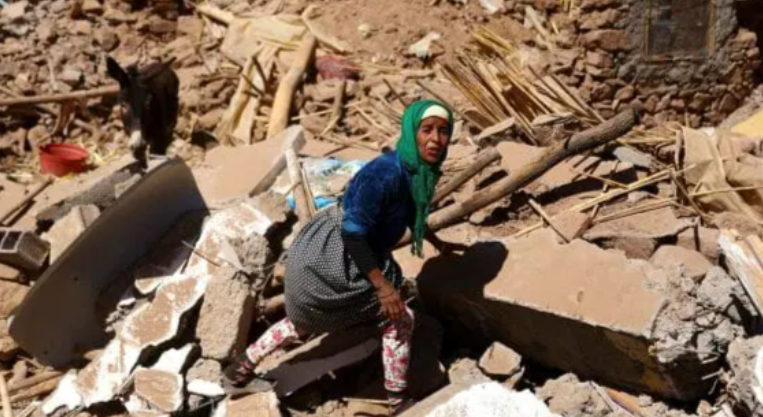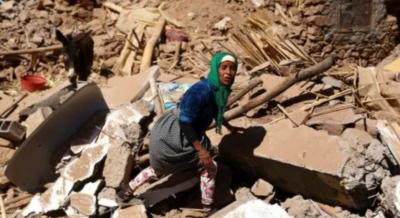Villagers in some of the most remote areas affected by the Morocco earthquake are staying in temporary tents, relying on donkeys to bring in essential supplies while waiting for state assistance expected to arrive today, Thursday, nearly a week after the disaster.
While organized camps have appeared in larger towns with tents provided by the government and field hospitals, residents in rugged areas continue to depend on donations left by volunteers along the roads. Reporters from Reuters observed survivors camping in the open under plastic covers, fearing aftershocks could destroy their already damaged homes.
A 20-year-old resident of the remote village of Azrmoun stated, "We Amazigh feel like foreigners and strangers in our own country. We feel isolated. People here need help. They feel alone without support." This sentiment echoes long-standing grievances among Amazigh people regarding their marginalization in a predominantly Arab state.
The government claims it is doing everything possible to assist earthquake victims, and Reuters reporters also witnessed military convoys and helicopters in some locations. The royal palace announced today, Thursday, that 50,000 homes have been confirmed as damaged by the earthquake, and it will provide shelter and 30,000 dirhams (about three thousand dollars) to each affected family. The statement also pledged 140,000 dirhams for collapsed homes and 80,000 dirhams for weakened and damaged houses for reconstruction assistance.
Marrakech city is located about 72 kilometers from the earthquake's epicenter and sustained some damage. Abdellatif Jouahri, the governor of Bank Al-Maghrib (the Moroccan central bank), stated today that Marrakech will host the annual meetings of the International Monetary Fund and the World Bank from October 9 to 15 as previously scheduled. However, there are no significant signs of assistance from the authorities in Amazigh villages, and there seems to be no chance for life there to return to normal anytime soon.
On a hill in Azrmoun village, men shared food and water supplies, placing them on donkeys and mules to transport to Oufo, approximately 15 kilometers away, in a slow-moving convoy of people and animals. Mohamed Zidane (55 years old) from Oufo said, "People are suffering from this earthquake. They have nothing. We are living off air. We need tents and blankets." After the convoy was ready, Zidane rode an animal at the beginning of the long return journey to his village. The next convoy will not organize for another two or three days.
In a valley below steep slopes of the severely damaged village of Anzifi, locals have set up a camp using some tents alongside blankets and other belongings they could carry. Mohamed Oufkir (30 years old) stated, "We are still waiting for government assistance. We are here because we are homeless." He added, "We are at risk because if it rains, the valley may flood." He noted that it was very cold at night.
In the village of Tkadirt, Ibrahim Maghachi’s house was still standing but had large holes and wide cracks in the walls. Fearing for their safety inside the house, Maghachi, his wife, and their three daughters, aged six, ten, and fifteen, set up a tent they erected without prior preparation. They laid down cardboard and a mat on the ground and placed mattresses on top. Maghachi (39 years old) expressed, "We are very scared. Life here has become harder. It is cold. We no longer have a home, and we fear another earthquake. The government doesn’t care about us. We feel marginalized. We are angry."




